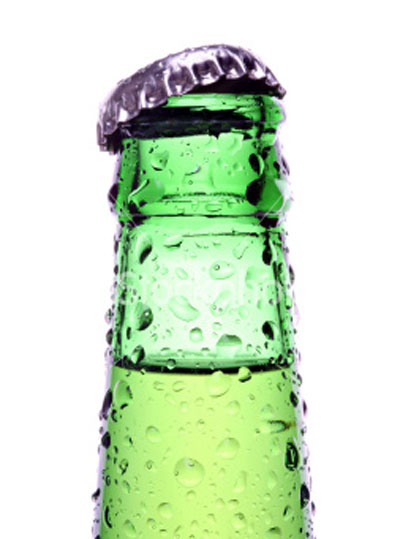 Proms, graduation parties, bonfires at the beach, impromptu gatherings at a friend’s pool — it’s not surprising that many parents feel the opportunities for teens to drink alcohol are endless.
Proms, graduation parties, bonfires at the beach, impromptu gatherings at a friend’s pool — it’s not surprising that many parents feel the opportunities for teens to drink alcohol are endless.
And adding to the pressure is the truth that the days are pretty much past when a little crazy experimentation with booze was considered a normal part of growing up. Nearly everyone knows how deadly drunk driving can be (between 2006 and 2010, there were 193 impaired driving-involved deaths of people ages 16–20 in Washington, according to the state Traffic Safety Commission), but there are other dark scenarios connected with teens and alcohol.
Recently, several teens from the Northwest have died of alcohol poisoning, including a 14-year-old Bellingham girl who had a blood alcohol level higher than .40 percent. (The state legal limit for adults is .08; for those younger than 21, it’s .02 percent.) And the national news has been awash with the tragic stories of two girls, one in Canada and one in California, who were sexually assaulted after drinking at parties, with pictures of the assaults posted on social media. Each girl subsequently committed suicide.
Today, many local high schools enact “zero tolerance” policies. That means alcohol-related infractions can get a student kicked off athletic teams or removed from student activities for periods of time ranging from a few weeks to the entire school year.
In Bellevue schools, if there is “reasonable belief” that a student has violated the policy of no drug or alcohol use, the student is suspended from all sports and activities for two weeks and required to complete a professional substance abuse assessment through an outside agency, according to Bellevue School District policy. The student must also attend a school district alcohol and drug information class. A second violation gets the student suspended from activities for the rest of the semester; a third, suspension for the remainder of the year.
Start the conversation
It’s critical to discuss alcohol use with your teens, says Victor Larson, a therapist and school counselor for Explorer West Middle School and University Prep, both in Seattle. And those talks need to start earlier than you might think — by middle school, even the higher elementary grades. “You shouldn’t wait until kids are in high school,” he says.
Parents need to persist, even in the face of studied adolescent nonchalance. “Kids will roll their eyes and say, ‘Yeah, yeah, we had it in health class,’” Larson says. “You then say, ‘I know you think you know this stuff, and that’s fine, but you also have to know how I feel about it and I need to be real clear about my expectations.’”
Try not to start a discussion just before your teen is heading to a party or activity and is rushed, the experts say. Instead, bring it up in small bites every now and then when everyone is relaxed — during a drive, perhaps, or on a walk. When a news story crops up about teens and drinking, discuss it at dinner, letting everyone speak their mind, parent and child. Remember, experts say, it’s much more likely to stick if it’s an ongoing dialogue, instead of one big lecture.
Setting the limits
So what are your expectations and rules? Larson knows some parents believe it’s better to let kids drink at parties at a supervised home as long as they don’t drive, reasoning that at least adults are keeping an eye on them. And he’s heard of plenty of parents who consent to letting teens rent hotel rooms for partying after proms or other dances. He’s opposed to both scenarios. “I know it’s happening, but my view is it’s crazy.”
So much can go wrong, he says. Adults who knowingly supply minors with alcohol are breaking the law and face liability if something happens. And very bad things can happen, including alcohol poisoning, sexual assaults, drunken driving, fights and property destruction.
“There are some well-publicized instances of young men charged with sexual assault for taking advantage of someone who is impaired,” says Larson. And drinking lowers resistance to consensual activities as well, encounters that teens might not feel good about later, he adds.
Officials in Mercer Island, Wash., where laws are especially tough on people who let minors drink on their property, passed an ordinance last year that fines homeowners or renters $250 if anyone who is underage drinks alcohol in their home — whether or not the owner is there at the time or aware that it is happening.
They start early
The earlier you start drinking, the more likely you are to develop addiction problems later, Larson says. According to the National Institutes of Health, a young teen who drinks is four times more likely to develop an alcohol dependency than someone who waits until adulthood to drink.
But many kids aren’t waiting. Alcohol use remains widespread among today’s teenagers: Nearly three-quarters of students have consumed alcohol (more than just a few sips) by the end of high school, according to the National Institute on Drug Abuse, and more than one-third have done so by the eighth grade.
Lena Louie, a South Seattle mother of two girls, 15 and 19, and a son, 24, has always set well-defined boundaries for her kids when it comes to alcohol. “They probably don’t even remember when we started talking about it,” she says. She and her husband made it clear from their first conversations on the topic that drinking under the age of 21 was “a definite ‘no’” for their family.
Louie and her family also had dialogues about other families that allowed teens to drink at homes or to party in hotel rooms after school events. That was not for them. “We told our children it’s a safety thing, and that we are here to protect them. It’s all underage drinking to us, plain and simple.”
Talking to teens
Dr. Elizabeth Waterman, a psychologist at Morningside Recovery in Newport Beach, Calif., specializes in addiction treatment. She says it’s important to be clear and unequivocal when talking your kids about drinking — and to never allow parties at home where teens can drink.
Often during these talks, teens will respond with “Well, you drink alcohol,” Waterman says, but it’s important for parents to draw the distinction between adults and teenagers. “You say, ‘You do not drink in our house until you are 21. Mom and Dad can drink because we are over 21 and it’s legal, and we’re responsible and we do not drive when we drink.’”
Remember that adolescent brains are still developing, and a teen’s impulse control is not yet mature, she says. “There are a lot of YouTube videos that are good explaining how alcohol affects your brain and judgment,” says Waterman. To find them, go to YouTube and search “teens and alcohol.” Preview them for suitability before watching them with your child.
Gordon Myers, the author of the book Street Smart Kids, a soccer coach and the father of two children, 16 and 20, tells his kids and his young athletes that he understands the pressure they’re often under to party or to fit in. Simply telling teens they’re forbidden to touch alcohol will halt communication, Myers says.
“You can never do that, or you shut them down. You’re giving them a pretty strong message that you are totally unaware of what is going on their world. But 95 percent of their friends are experimenting with alcohol, and you need to let them know you understand how strong that peer pressure is.”
Waterman reminds parents that it’s critical they set the example. “Follow your words and use alcohol responsibly,” she says. “If you’re going to drink in front of them, show respect for it. Model what you’re saying.”
Besides loving to report and write, Seattle native Elaine Porterfield enjoys skiing and camping with her husband and their 13-year-old daughter. Both husband and daughter, though, decline to join Elaine in her other passion, hot yoga. The whole family enjoys a good book.
HOW TO TALK TO TEENS ABOUT ALCOHOL
Jeffrey L. Reynolds, Ph.D., executive director of the Long Island Council on Alcoholism and Drug Dependence in New York, says to start the conversations early. “It’s important to foster openness and trust, but it’s also important to clearly convey your thoughts, ideas and expectations related to substance abuse.”
Here are some talking tips from Reynolds, Seattle school counselor Victor Larson and the National Institutes of Health:
- Offer good reasons to stay away from alcohol. Don’t go too heavily into scare tactics. Most teens are aware that many people drink without problems, so it is important to discuss the consequences of alcohol use without overstating the case.
- They’re not even safe drinking at a friend’s house or a hotel room. It increases the risk for sexual assault, fights and violence, slips and falls, water and diving accidents, and alcohol poisoning.
- Drinking is sometimes lethal. A leading cause of teen deaths is drunk driving. Drinking also makes a young person more vulnerable to sexual assault and unprotected sex.
- Communicate that not drinking helps maintain self-respect. Tell them they are too smart and have too much going for them to need the crutch of alcohol. And let them know how alcohol might alter important relationships. One Bellevue father told his high school son, “Nobody wants to kiss a puker.”
- Drinking is illegal. Make sure they know that getting caught may mean big trouble with the authorities and athletic teams.
- Your family has a history of substance abuse. If one or more members of your family have suffered from the disease, your child may be vulnerable to developing a drinking problem.
- Let your kids know if they find themselves in a situation that makes them uncomfortable or think the person they are driving with has been drinking, they can call you for a safe ride home.









